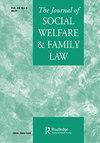这里没有赢家,只有失败者+
IF 0.6
Q2 LAW
引用次数: 0
摘要
最高法院最近公布了其对Guest v Guest [2022] UKSC 27的判决。这是一起针对专利禁止翻供赔偿约130万英镑的上诉。一项专有禁止反悔请求要求有害地依赖于给予请求人土地权益的承诺。这就产生了一种“衡平法”,使法院能够制定一种补救措施来纠正这种不合理的情况:例如,命令将承诺的利息转让给索赔人,或命令支付与索赔人预期等值的金钱。这一原则在一些有利于媒体的案件中得到了应用,在这些案件中,索赔人多年来一直在自己的家庭农场以低薪或无薪工作,期望得到一份遗产,但最终却被剥夺了这份遗产。对于大多数人来说,布里格斯勋爵赞成将这一承诺作为一个起点,同时允许在“现实问题”需要的情况下进行变化。他认为,索赔人应该得到他所期望的,但以一种新颖的方式,给予被告在两种救济形式中选择的权利。Leggatt勋爵持不同意见,认为补救的目的是只做必要的事情来防止损害索赔人。他认为,补偿索赔人的信赖损失就足以做到这一点,在这方面,他没有考虑到失去的机会。这是一个狭窄的适用范围,多数人的判决更有可能为失去重要的生活机会提供补救。本文章由计算机程序翻译,如有差异,请以英文原文为准。
‘[T]here are no winners here, only losers’+
ABSTRACT The Supreme Court recently handed down its decision in Guest v Guest [2022] UKSC 27. This was an appeal against an award in proprietary estoppel of around £1.3 million. A proprietary estoppel claim requires detrimental reliance on a promise to grant the claimant an interest in land. This generates an ‘equity’, which enables the court to fashion a remedy to cure this unconscionable situation: for example, an order to transfer the promised interest to the claimant, or an order to pay a monetary equivalent of what the claimant expected. The doctrine has been relied upon in media-friendly cases where claimants had worked on their family farms for low or no pay for many years on the expectation of an inheritance and ended up being cut out of that inheritance. Lord Briggs, for the majority, favoured enforcing the promise as a starting point while allowing for variation where ‘real-life problems’ warranted it. He held that the claimant should have what he expected but, in a novel approach, gave the defendants an entitlement to choose between two forms of relief. Lord Leggatt, dissenting, held that the remedial aim was to do only what was necessary to prevent detriment to the claimant. On his view, compensating the claimant’s reliance loss would be sufficient for this, and, in that regard, he did not factor in lost opportunities. This was a narrow scope to adopt, and the majority judgment is more likely to provide redress for the loss of important life opportunities.
求助全文
通过发布文献求助,成功后即可免费获取论文全文。
去求助
来源期刊
CiteScore
2.00
自引率
13.30%
发文量
52
期刊介绍:
The Journal of Social Welfare & Family Law is concerned with social and family law and policy in a UK, European and international context. The policy of the Editors and of the Editorial Board is to provide an interdisciplinary forum to which academics and professionals working in the social welfare and related fields may turn for guidance, comment and informed debate. Features: •Articles •Cases •European Section •Current Development •Ombudsman"s Section •Book Reviews

 求助内容:
求助内容: 应助结果提醒方式:
应助结果提醒方式:


